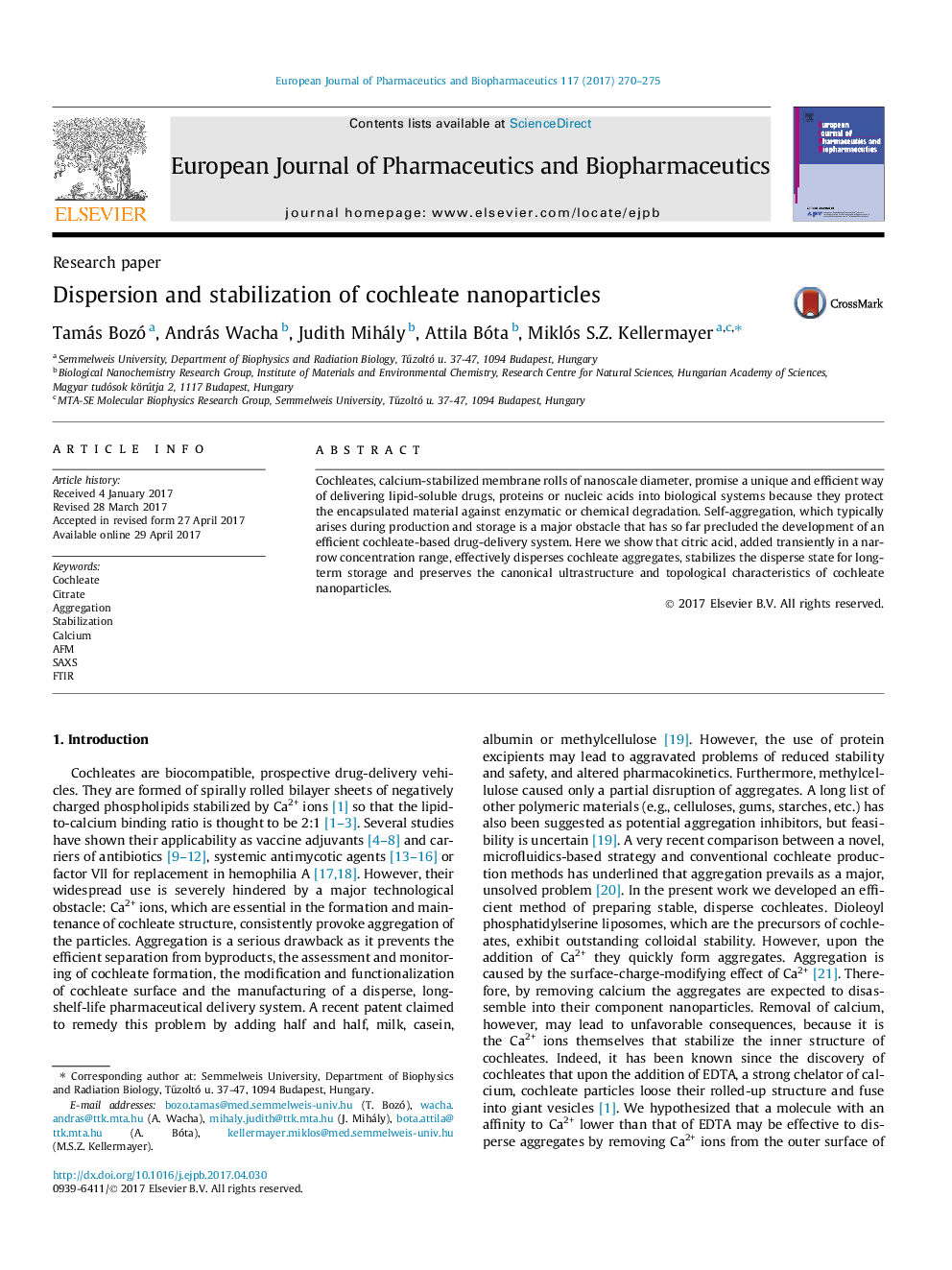| Article ID | Journal | Published Year | Pages | File Type |
|---|---|---|---|---|
| 5521516 | European Journal of Pharmaceutics and Biopharmaceutics | 2017 | 6 Pages |
â¢Cochleates are phospholipid-based, calcium-stabilized drug delivery vehicles.â¢They tend to self-aggregate during production and storage.â¢Transient addition of citric acid effectively disperses cochleate aggregates.â¢Citric acid removes calcium ions from the cochleate surface.â¢Dispersity and structure of the particles are stable for long time.
Cochleates, calcium-stabilized membrane rolls of nanoscale diameter, promise a unique and efficient way of delivering lipid-soluble drugs, proteins or nucleic acids into biological systems because they protect the encapsulated material against enzymatic or chemical degradation. Self-aggregation, which typically arises during production and storage is a major obstacle that has so far precluded the development of an efficient cochleate-based drug-delivery system. Here we show that citric acid, added transiently in a narrow concentration range, effectively disperses cochleate aggregates, stabilizes the disperse state for long-term storage and preserves the canonical ultrastructure and topological characteristics of cochleate nanoparticles.
Graphical abstractDownload high-res image (171KB)Download full-size image
